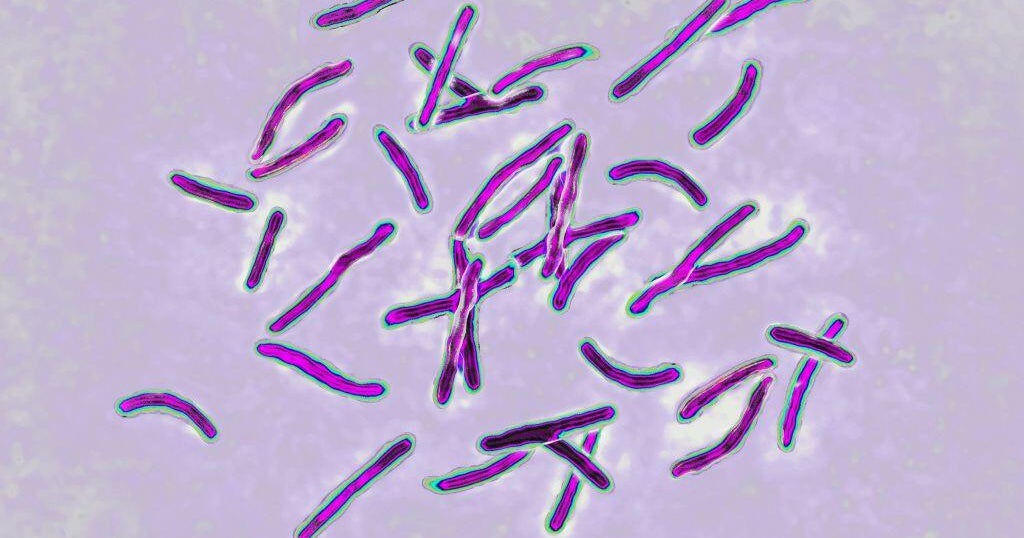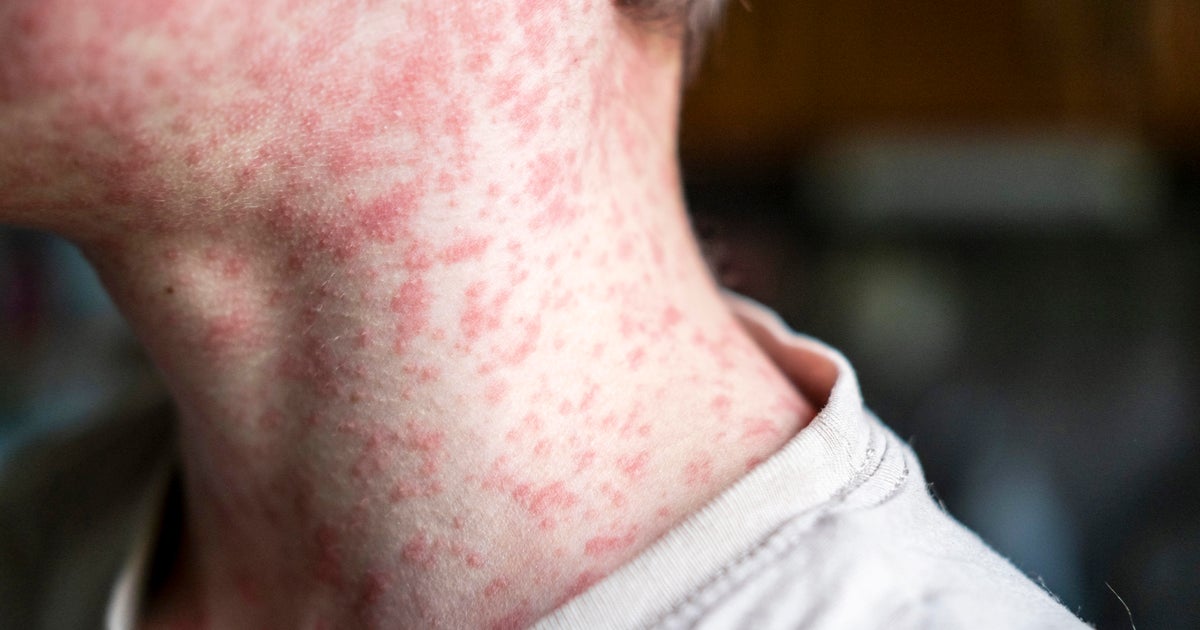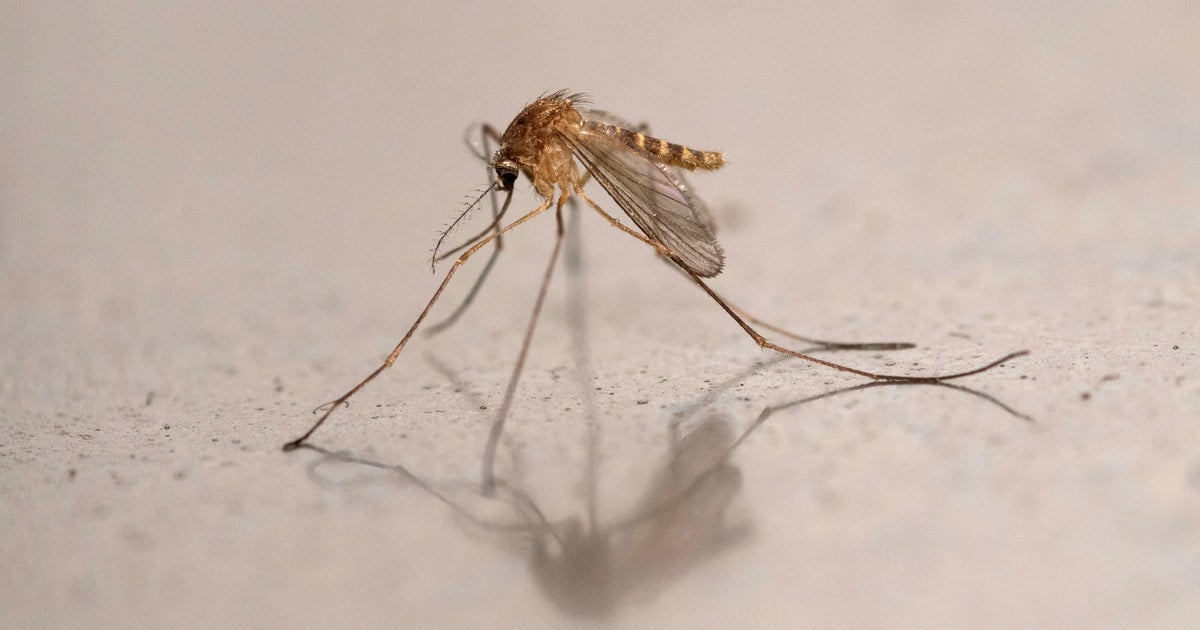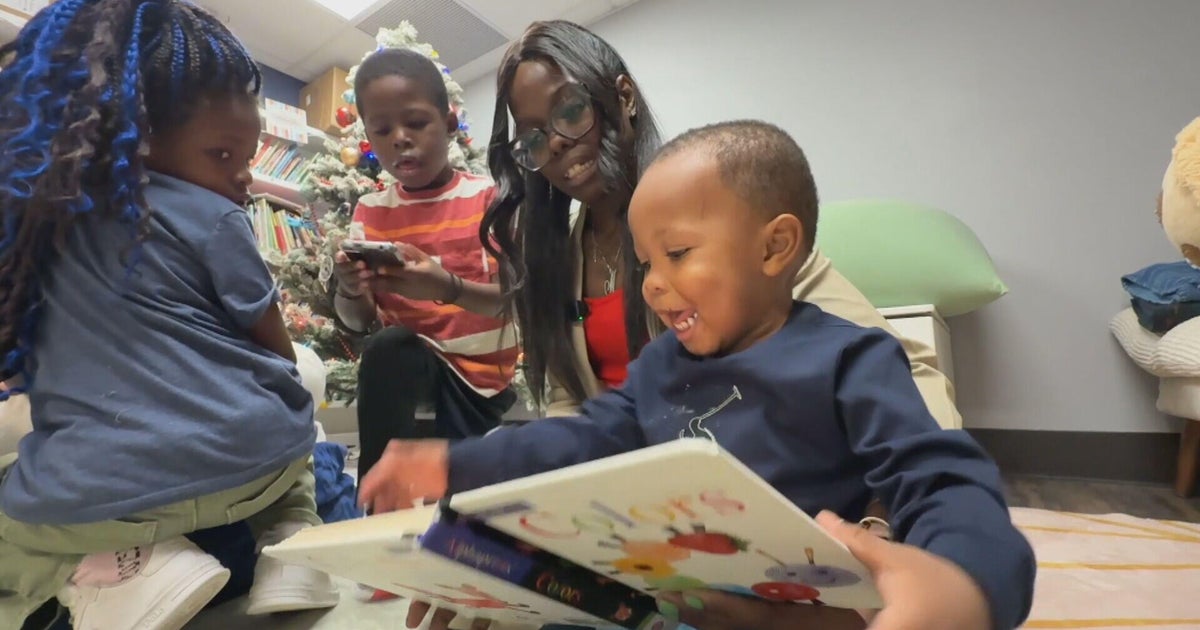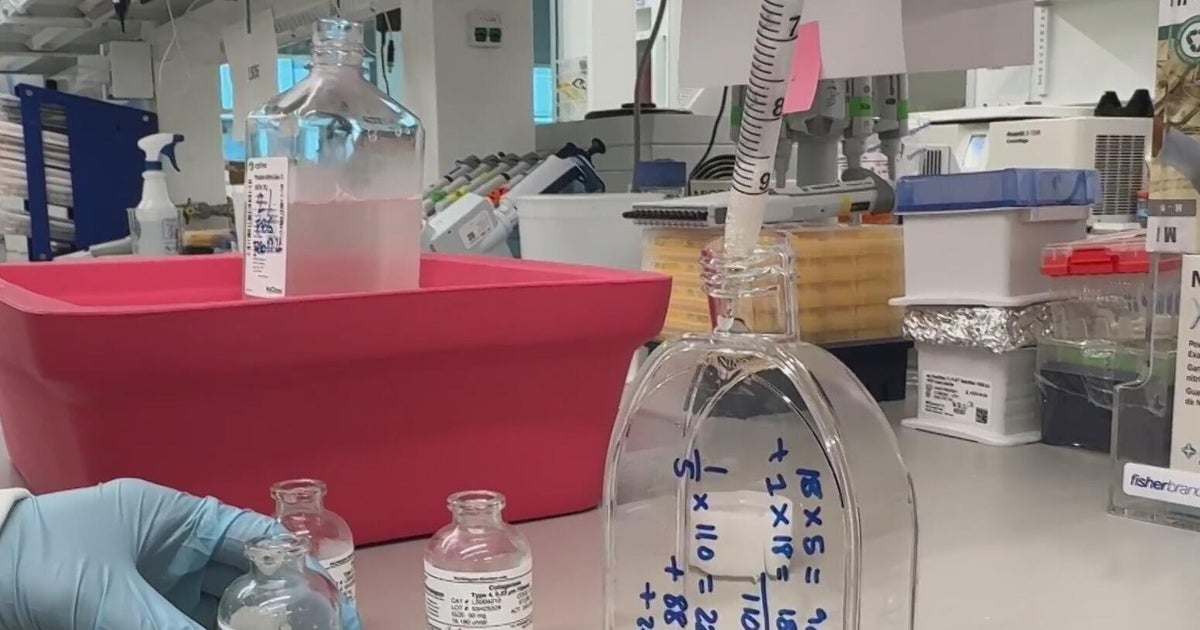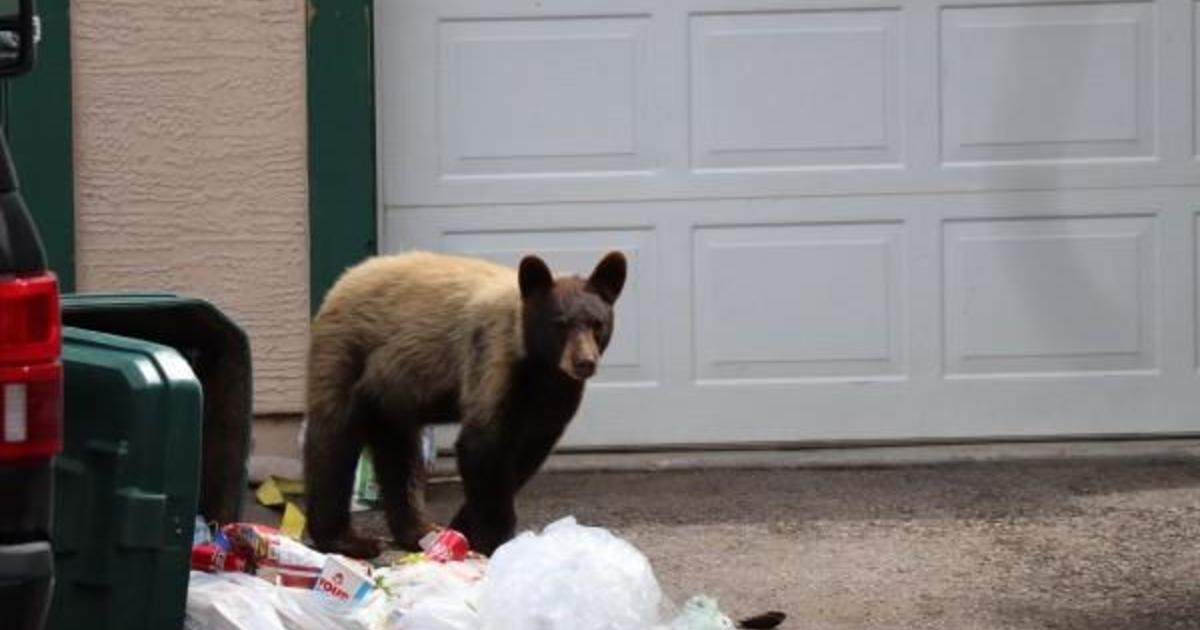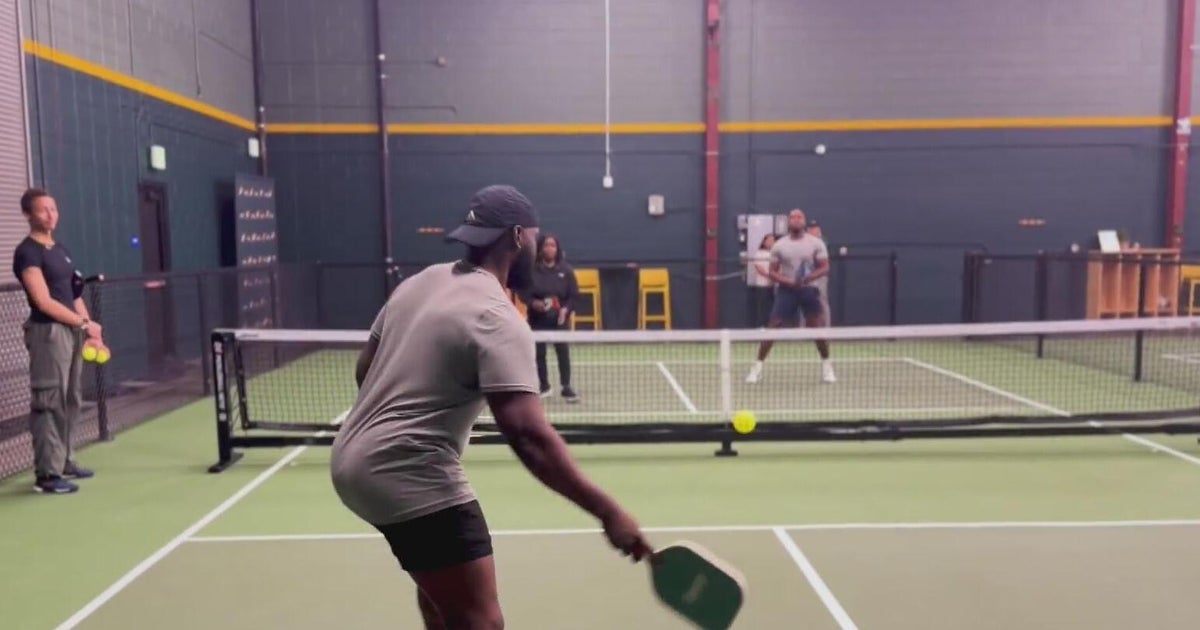COVID-19 reaches 'high' community risk level in Evanston
EVANSTON, Ill. (CBS) -- COVID-19 metrics have grown disturbing in north suburban Evanston, where the community risk has been elevated to the "high" level.
The Evanston Department of Health and Human Service reported 397 new COVID-19 cases over the last seven days – up from 305 the prior week.
The Centers for Disease Control and Prevention determines community risk level based on three metrics of which cases are only one. The metrics are the number of new COVID-19 hospital admissions per 100,000 people over the past seven days, the percentage of staffed inpatient beds occupied by COVID-19 patients, and the total new number of COVID-19 cases per 100,000 people in the past seven days.
Based on those criteria, Evanston is now in the "high" risk category.
The City of Evanston is not presently reinstating a mask mandate, but the city's Department of Health and Human Services says masks should be worn in public – regardless of vaccination status. Also advised are socializing outdoors and avoiding poorly-ventilated indoor settings, getting tested before a family and public event, staying up to date with COVID-19 vaccines and boosters, and following CDC isolation and quarantine recommendations.
In Evanston, it is estimated that about 90 percent of people are fully vaccinated, and the focus has shifted on getting people to stay up on booster shots.
"Evanstonians have done a wonderful job following health guidance for over two years and lives were saved because of it," Evanston Mayor Daniel Biss said in a news release. "As COVID-19 cases begin to increase again, it's important that we remain vigilant and continue to do our part to keep ourselves and our neighbors safe and healthy."
Some in Evanston are wondering if a return of the mask mandate might be coming next.
At the Campus Gear sports apparel store, at 1722 Sherman Ave. in downtown Evanston close to the Northwestern University campus, a sign is still posted reading "face mask required." It is actually a polite suggestion – for now.
"They ask us, 'Do you require having masks on?' and we're like, 'It's optional,'" said Campus Gear manager Steve Mirzakhail.
But now that the City of Evanston is at the "high" risk level for COVID-19, staff might be masking more.
"We do have to be a little more cautious," Mirzakhail said.
Families taking a trip to the Kilwins ice cream shop next door were also exercising some extra caution. We saw Vincent Bohanek and his loved ones helping put on masks before heading indoors.
"We have two members of the family that are auto-immune compromised," Bohanek said. "Members of my family are even more protective. Like outdoors, I won't wear it but, when I go inside, it's just more confined areas."
Evanston is now the first city in the Chicago area with the high-risk classification. Its figure of 395 cases in seven days amounts to about 56 cases per day.
Northwestern University has its own system for COVID-19 metrics.
"We like checked the dashboard today like during my class, and I was like, 450 is a lot!" said Paula Perez-Glassner.
That is how many cases the Evanston campus at Northwestern reported in the past week. The positivity rate at Northwestern is 9.28 percent.
The school has seen a steady increase since mid-April – with infections mainly in undergrads.
"I personally think that like we probably should have to have more mandates reinstated - also because we have our big Dillo Day next weekend, which is like the music festival," Perez-Glassner said.
In Chicago, the current daily average of COVID-19 cases is 1,001 – up 32 percent from the prior week. On Friday alone, the entire State of Illinois reported 8,411 new COVID-19 cases.
But on Friday afternoon, Chicago Department of Public Health Commissioner Dr. Allison Arwady said the news isn't all bad.
"We know that there is some more concern, but the good news is that most infections – most cases here in Chicago – are not turning into hospitalizations like they did at levels similar to this in prior surges," Arwady said. "That's because of vaccines and boosters. It's also because of the access to our early treatments that now are available that we didn't have even six months ago.
Arwady said a change in hospitalizations could mean a change in the tide for mandates.
"We would need to see about a doubling of the number of Chicagoans being newly hospitalized with COVID compared to what we're seeing now," she said.
Chicago and suburban Cook County are at a "medium" COVID-19 risk level. Suburban Cook County for these purposes excludes Evanston, Skokie, Oak Park, and Stickney Township, which each have their own health departments.
